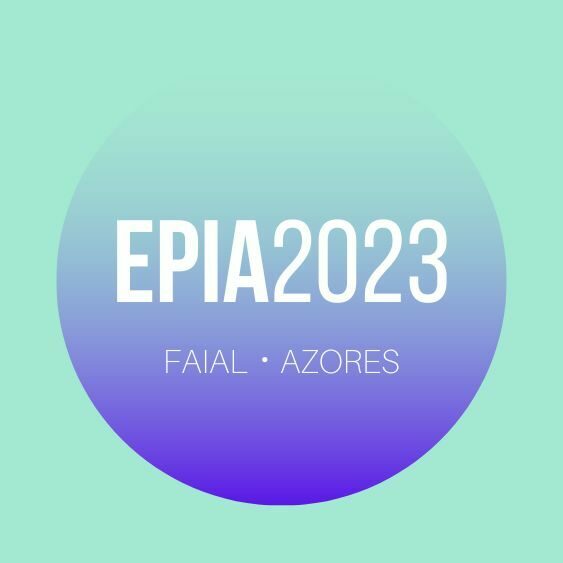Artificial Intelligence in Power and Energy Systems
Societies are highly dependent on electricity use to ensure safe, reliable, and comfortable living. The increase of electricity demand is expected to continue in the future and it is considered a crucial requirement for economic development. Concerns about the impact of electricity use in the environment and about the eventual fuel based primary source shortage are presently taken as very serious at scientific, economic and politic levels. These concerns have led to intensive research and to new energy policies envisaging the increased use of renewable energy sources for electricity production and increased energy use efficiency.
In such a dynamic, complex, and competitive environment as the power and energy sector, the use of artificial intelligence is of crucial importance to enable taking full advantage from the opportunities in the field in order to overcome the challenges that are constantly arising.
This track aims at bringing together different experiences in the application of artificial intelligence to power and energy problems. This track targets the contribution of the main international experts in the field, both from academia and industry.
TOPICS OF INTEREST
- Agent-based Smart Grid Simulation
- Big Data Applications for Energy Systems
- Coalitions and Aggregations of Smart Grid and Market Players
- Consumer Profiling
- Context Aware Systems
- Data-Mining Approaches in Smart Grids
- Decision Support Approaches for Smart Grids
- Demand Response Aggregation
- Demand Response Integration in the Market
- Demand Response Remuneration Methods
- Electricity Market Modelling and Simulation
- Electricity Market Negotiation Strategies
- Energy Resource Management in Buildings
- Information technology applications
- Innovative Demand Response Models and Programs
- Innovative Energy Tariffs
- Integration of Electric Vehicles in the Power System
- Intelligent Approaches for Microgrid Management
- Intelligent Home Management Systems
- Intelligent methods for Demand Management
- Intelligent Resources Scheduling
- Intelligent Supervisory Control Systems
- Knowledge-based approaches for Power and Energy Systems
- Load Forecast
- Market Models for Variable Renewable Energy
- Multi-Agent Applications for Smart Grids
- Multi-Agent Systems in Power and Energy Systems
- Other Artificial Intelligence-based Methods for Power and Energy Systems
- Real-time simulation
- Reliability, Protection and Network Security Methods
- Renewable Energy Forecast using Computational Intelligence
- Semantic communication and data
- Smart Sensors and Advanced Metering Infrastructure
ORGANIZATION COMMITTEE
- Zita Vale, Polytechnic of Porto / GECAD, Portugal
- Tiago Pinto, UTAD / INESC TEC, Portugal
- Pedro Faria, Polytechnic of Porto / GECAD, Portugal
- Elena Mocanu, University of Twente, Netherlands
- Decebal Constantin Mocanu, Technical University of Eindhoven, Netherlands
Program COMMITEEE
- Alfonso Briones, University of Salamanca, Spain
- Ana Estanqueiro, LNEG−National Research Institute, Portugal
- Bo Norregaard Jorgensen, University of Southern Denmark, Denmark
- Carlos Ramos, Polytechnic of Porto, Portugal
- Dagmar Niebur Drexel University, USA
- Fernando Lopes, LNEG−National Research Institute, Portugal
- Gabriel Santos, Polytechnic of Porto, Portugal
- Germano Lambert-Torres, Dinkart Systems, Brazil
- Gonçalo Marques, Polytechnic of Coimbra, Portugal
- Goreti Marreiros, Polytechnic of Porto, Portugal
- Hugo Algarvio, LNEG−National Research Institute, Portugal
- Hugo Morais, University of Lisbon – IST, Portugal
- João P. S. Catalão, University of Porto, Portugal
- João Peças Lopes, University of Porto, Portugal
- José Rueda, Delft University of Technology, The Netherlands
- Kumar Venayagamoorthy, Clemson University, USA
- Luis Gomes, Polytechnic of Porto, Portugal
- Nikos Hatziargyriou, National Technical University of Athens, Greece
- Nouredine Hadj-Said, Institut National Polytechnique de Grenoble, France
- Nuno Fidalgo, University of Porto, Portugal
- Przemyslaw Komarnicki, Fraunhofer, Germany
- Tiago Soares, INESC-TEC, Portugal
- Zheng Ma, University of Southern Denmark, Denmark

